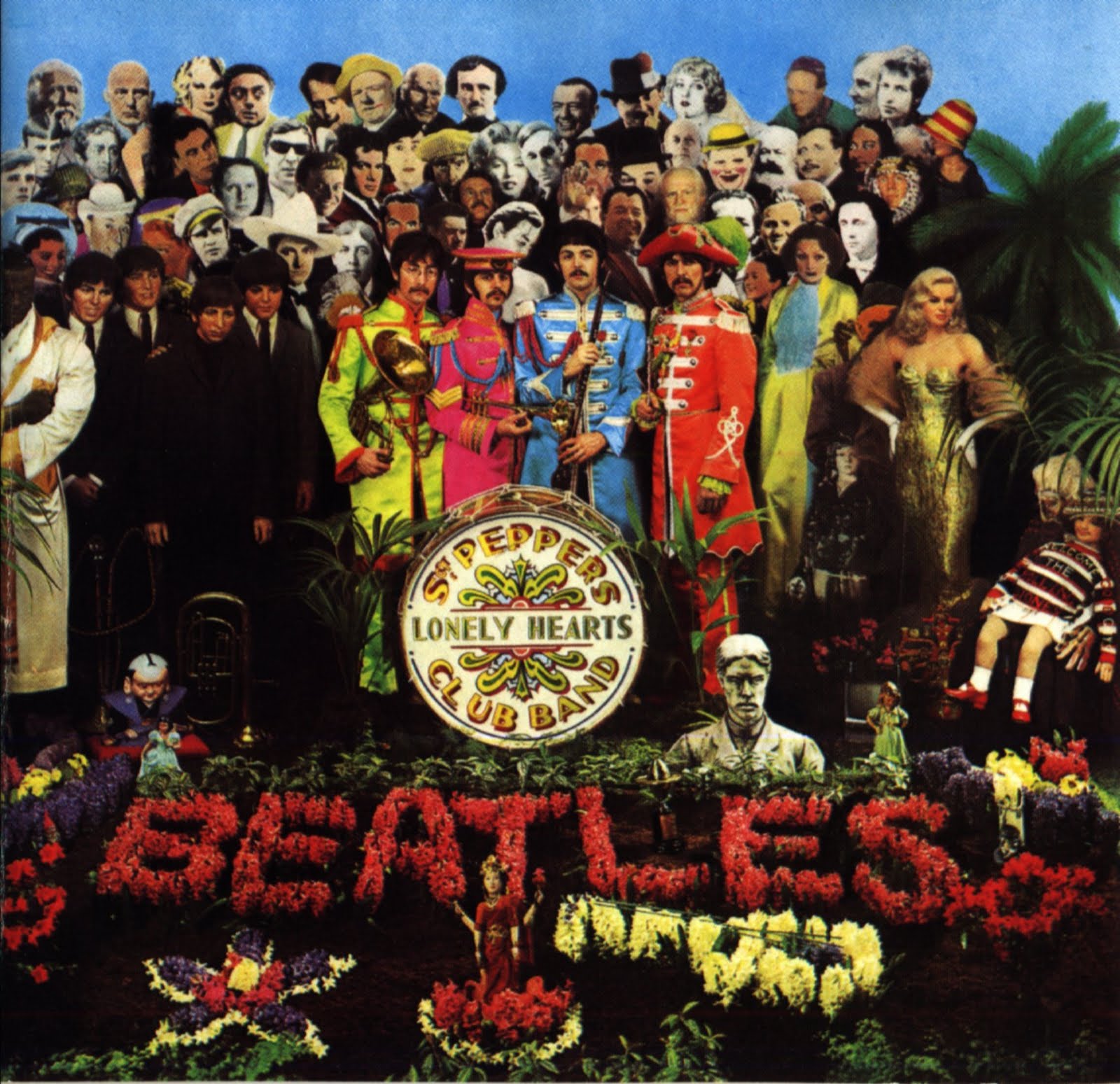The Beatles' album Sgt. Pepper's Lonely Hearts Club Band came to America on 1 June 1967, and changed the world.

As one might imagine, most news organizations have articles about it:
As for me, I received a copy of the LP as a gift probably in 1981, and bought a copy of the CD on 3 November 1988 for $12 (about $25 today). It remains one of my favorite musical compositions—and yes, I'm comparing it to Mozart's Großemesse and Orff's Carminia Burana. And I'm going to listen to it again today.
If you're in the Chicago area, today is your last chance to see the Apollo Chorus "American Masters" concert.
We're performing Jeff Beal's "Salvage Men," with Beal himself in attendance (and playing flugelhorn on his "Poor in Sprit" later in the concert). Tickets are still available, $35 at the door ($15 for students), this afternoon at 3pm at Alice Millar Chapel in Evanston.
Things to read today:
And finally, the Chicago Tribune has an article on our concert this weekend, and composer Jeff Beal performing in it:
"I suppose it might have been DNA asserting itself," said Beal, who will be in Chicago May 5 and Evanston May 7 when the celebrated Apollo Chorus includes his "The Salvage Men" and "Poor in Spirit" as part of their 145th-season-ending spring concert, "American Masters," in Chicago and Evanston. "It's true that [my grandmother] passed on her love of improvisation, but there's also something almost eerily similar about what she did, watching a screen and creating her own musical accompaniment, and what I do in my day job."
[H]e had been diagnosed with multiple sclerosis in 2007. Though he took seven years to process the news before beginning to write "The Salvage Men" in 2014.
Serendipitously, that was about the time that Apollo Chorus music director Stephen Alltop, who studied with Beal at Eastman, got back in touch to praise Beal's work on" House of Cards" and suggest the possibility of doing a concert together. Which explains why Beal and his new choral works are appearing in Chicago directly after their debuts in London and Los Angeles. Beal also will perform solo trumpet over the comparatively simple text of his "Poor in Spirit," — it consists entirely of one repeated phrase from the Beatitudes: "Blessed are the poor in spirit" — much as he often plays trumpet over the score of "House of Cards."
Tickets are available through the Apollo Chorus website. It's going to be an amazing concert.
This is what I saw last night:
As a singer who's performed the original Messiah about 10 times, I pronounce Too Hot to Handel amazeballs, and I will be in the chorus next year.
The Apollo Chorus of Chicago are literally in the mix of the upcoming Netflix show Sense8. You can hear us in this promo.
We haven't been able to share this information until just now. The chorus recorded a cover of Leonard Cohen's "Hallelujah" at our November 21st rehearsal. (I unfortunately missed the rehearsal, so I'm not singing in the episode. Boo.)
Yesterday the Apollo Chorus of Chicago sang Händel's Messiah for (possibly) the 274th time since we first sang it in 1879. We're going to do it again this afternoon. Our local ABC affiliate has more:
For nearly a century and a half, the Apollo Chorus has brought beautiful music to Chicago. On this night, the all-volunteer choir is rehearsing for one of the city's most cherished holiday traditions: a performance of Handel's "Messiah."
"When we sing Messiah, since Handel wrote it - think of how many thousands and how many choruses have sung it in how many countries and we're a part of that," chorus [president] David Beer said.
So, it's a fluff piece, but apparently I was on TV. Thus the link.
Seats are still available for today's 2pm performance.
Vice President-elect Mike Pence attended a performance of "Hamilton" in New York last night, and at the curtain call, actor Brandon Victor Dixon (who plays Aaron Burr) had something to say:
WaPo:
Pence reportedly left the auditorium before Dixon finished speaking, but a show spokesman told the Associated Press that the vice president-elect stood in the hallway and heard the full message.
Apparently unaware that (a) the Constitution grants all Americans the right to free speech and "to petition the government for redress of grievances," and (b) elected politicians should, by virtue of their jobs, expect direct and public criticism at all times, President-elect Donald Trump took to Twitter:
Just, wow. The person almost half the voters chose to be president can't help himself, can he? I really look forward to this idiot blowing up our relationships with most of the world over Twitter. And to think, more than half the voters thought he hasn't got the temperament to be president.
Recaps of the debate comprise just a few of the things I haven't had time to read today:
- Who hated Trump's caginess on whether he'd accept the election results if he lost? Everyone: The Economist, The New Republic, The National Review, Talking Points Memo, everyone.
- Trump's debate performance is being compared to book reports by kids who haven't read the book.
- Pilot Patrick Smith says Trump's airline wasn't that bad for customers, but it never made a profit either.
- Meanwhile, the Cubs beat the Dogders 10-2, which means the series will be decided at Wrigley on Saturday or Sunday.
- Looks like Chicago will have a warm-ish November and a normal-ish winter.
- One of the world's largest data centers, here in the South Loop area of Chicago, will soon be a lot bigger.
- Funny statistic: almost all airport noise complaints come from a handful of people—like the one person in Maryland who complained about Washington Dulles 1,024 times last year.
- Finally, "Hamilton," which I saw Sunday, got a rave from the Tribune.
Back to my meetings.